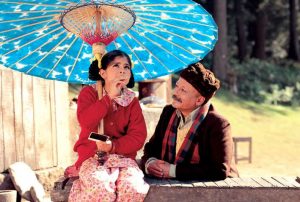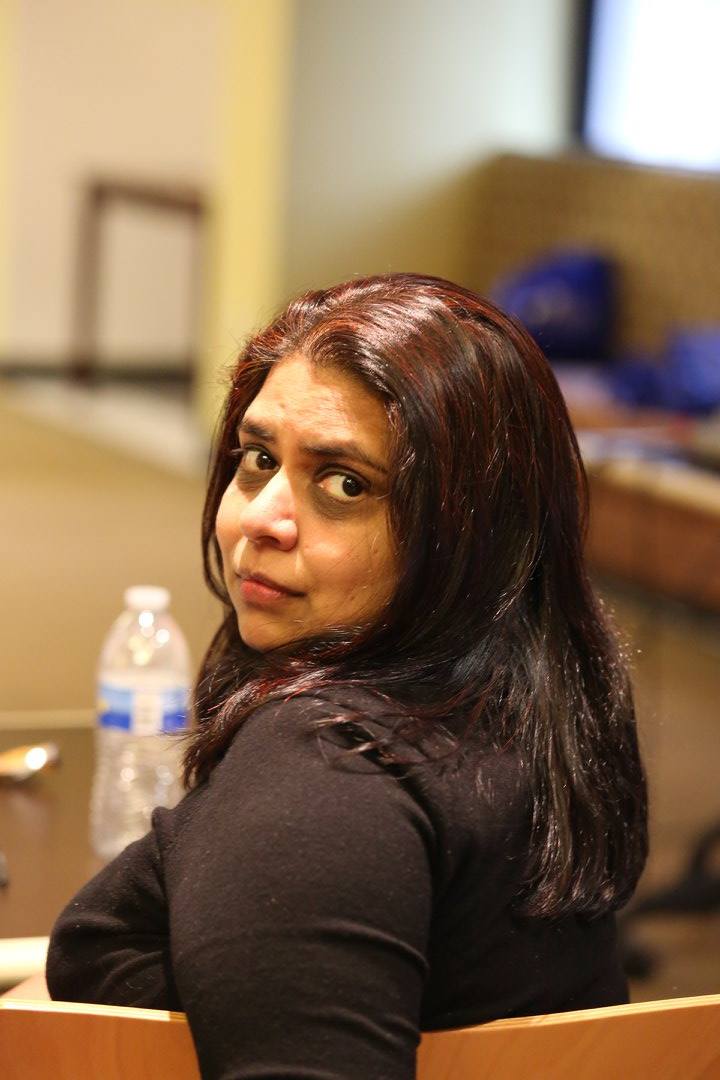Cineflections-41
Nimantran – An Invitation – 1971, Bengali
-Manjula Jonnalagadda
“To burn with desire and keep quiet about it is the greatest punishment we can bring on ourselves.” ― Federico García Lorca
Nimantran is a film directed and written by Tarun Majumdar based on a story by Bibhutibhushan Bandopadhyaya. This film won the Best Bengali Film award at the National Awards.
Tarun Majumdar started his film making career with Chaowa Pawa. He is known for Palatak, Nimantran, Balika Badhu, Ganadevata, amongst others. He is considered among the great filmmakers of Bengali cinema. While Tarun Majumdar is not as well known as the likes of Mrinal Sen, Ray, Ghatak, etc, he is a very important film maker.
This film is based on a story by Bibhutibhushan Bandopadhyay. Ray’s Apu trilogy was also based on Bibhutibushan Bandopadhayay novels. Bandopadhyay’s novels depict the rural life of Bengal in the first half of 20th century. Some of his novels have been translated, and are available on Amazon. A few of his novels and stories were adapted to the screen in both Hindi and Bengali.
The film is set in pre-independent India. The film opens with very talkative Hiru aka Hirendranath traveling by boat to visit his aunt. Kumu aka Kumudini is a girl who lives in the village, tends to her goats and supplies milk to people in the village including Hiru’s aunt. Kumu’s father passed away longtime ago. Her uncle is in-charge. Kumu is a free spirit, kind hearted and naughty at the same time. Her uncle is a local priest, he swindles people, and has taken most of the property belonging to Kumu and her mother. Kumu learns to read and write from the local postmaster Dayal.
Hiru is a student from Kolkotta who is awaiting his results. Hiru and Kumu get acquainted with each other, become friends and fall in love. Hiru’s aunt and Dayal ask Kumu’s uncle to let Kumu marry Hiru. Kumu’s uncle refuses. Dejected Hiru leaves the village, gets married and gets rich. He however is unhappy with his married life. After years, he comes back to the village to see Kumu married but not living with her husband. What happens between them is the rest of the story.
Neither of them had a well to do life. Haru’s parents cannot afford his college education, so he had to find a job. Kumu did not inherit anything from her father. She is dependent on her uncle for everything. Poverty is one of the themes that Bibhutibhushan Bandopadhyaya often explored in his works.
The film is a character study of Hiru and Kumu. When Hiru first arrives in the village to visit his aunt, he is a young man with ambitions of being a photographer and a writer. He goes back changed, silent, and sad. He works hard to satisfy his wife’s dreams of a rich life. But he doesn’t get emotionally close to her. He still loves and pines for Kumu.
Kumu on the hand hasn’t changed much on the outside. She remains the same talkative person she once was. She is also the one who does not let others know her pain. There are tears, but people see only her smiles. She somehow lives her life. She tells Hiru “My childhood was good, but this is fine as well”.
I couldn’t understand what Kumu’s uncle’s excuse to reject the marriage was even though they both were of the same caste. It seems to be someone in Hiru’s family married outside the community. I also wish there was more screen time for Hiru’s wife Suro. Her story was never told.
Music by Hemanta Mukherjee known as Hemant Kumar plays an important role in the film. It is excellent! Performances in the film especially that of Sandhya Roy as Kumu is really really good. So is Anup Kumar as Hiru. Even the support cast has also acted very well. Tarun Majumdar’s screenplay and direction are excellent as well.
This is a film one needs to experience!
*****


